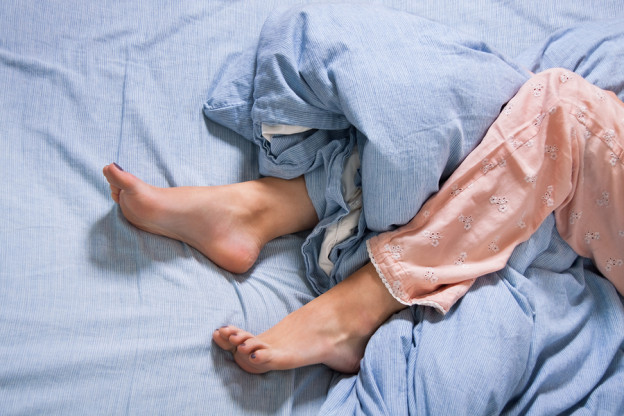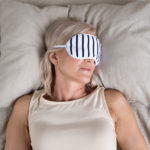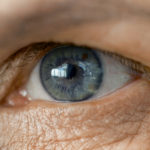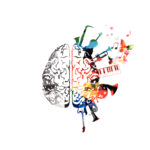By David Blyweiss, M.D., Advanced Natural Wellness
November 27, 2015
- When your bedtime legs “dance like Elvis”
- An explanation for restless legs syndrome that actually makes sense
- What does MSG have to do with it?
The other day a patient came in and told me that every time he tries to go to sleep, his legs start “trying to dance like Elvis.” In medical speak, I interpreted that to mean he’s been experiencing symptoms of restless legs syndrome, or RLS. And I was right.
He came to me because he was unable to get any relief from the drugs his previous doctor prescribed him. And I immediately understood why.
Today, the most commonplace theory is that RLS is the result of a dopamine shortage in your brain. When dopamine signals are hampered, it can affect muscle activity and cause you to have involuntary muscle movements.
Best case scenario? Your doctor will send you home with a prescription for a dopamine enhancer, like Requip. But this type of drug can often have a rebound effect: Over time, it can make your symptoms worse instead of better.
This doesn’t do you much good. And matters only get worse when your doc tries to patch things up with more meds, like muscle relaxers, sleep aids and opioid pain meds. Next thing you know, you’ll be a drug addict.
Open your arteries, improve blood flow for a new health miracle...
Did you know your circulatory system has over 60,000 miles of arteries, veins and other blood vessels, if stretched end to end?
But as you age, your blood vessels undergo changes, which may cause them to stiffen, thicken and get clogged.
GOOD NEWS! Doctors have now identified a “Miracle Molecule” inside your arteries that helps OPEN your arteries and IMPROVE blood flow.
It’s what Dr. Valentin Fuster calls it, "One of the most important discoveries in the history of cardiovascular medicine."To you, that means...
- Healthy blood pressure
- Sharper mind and memory
- Skyrocketing energy and muscular strength
- Increased pleasure and passion in the bedroom
- Improved circulation to every cell and organ in your body
Go here to discover a new natural way to significantly boost the levels of this miracle molecule in YOUR body NOW!
But hey, wait a minute! Let’s rewind this scenario back to the beginning.
If a lack of dopamine’s the problem, what caused that shortage in the first place? Why isn’t anyone fixing things up at ground zero?
Good question. And thankfully, there’s another explanation for RLS that might make a lot more sense to you.
It turns out that people with RLS have higher levels of glutamate in their thalamus than people without the disorder. This is the part of your brain that regulates sleep and alertness. It also plays a role in controlling parts of the brain responsible for body movement.
So when your glutamate levels rise, you can have trouble staying still and sleeping all night.
Now, here’s the thing.
Glutamate – particularly in the form of MSG – is very inflammatory. And when you have excess inflammation, it depletes the iron in your brain. Well, guess what? Your brain uses iron to make dopamine!
The World's Quickest Solution for Ending Prostate and Urinary Misery
This has recently been revealed to be one of the only real breakthroughs in prostate health.
The seeds of a strange fruit (sometimes called "Chinese Apples") hold powerful phytonutrients that are a revolution in prostate health.
In fact, UCLA and Veterans Administration research have now proved this to be true.
Not only that, but it may be the worlds quickest solution for ending prostate misery.
Simply stated, these phytonutrients represent a huge step beyond beta sitosterol, saw palmetto, and other phytosterols alone.
Simply click HERE if you want to have fast prostate relief...restful, uninterrupted sleep...no more constant "urges to go"...enhanced virility...and optimal prostate support for life.
In other words, the real problem isn’t a shortage of dopamine. It’s the initial inflammation that sets off a cascade of dopamine depleting events.
With this in mind, why not start fixing the problem from the ground up instead of patching it up on the back end?
Now, there are a lot of natural foods that contain glutamate. But, by far, the most widespread and dangerous source today comes from foods that contain MSG. It’s highly concentrated and almost entirely made of glutamates.
It’s a neurotoxin, meaning that it contributes to neurological inflammation. And RLS is defined as a neurological movement disorder. So the link is pretty clear.
What can you do to relieve RLS symptoms or protect yourself from spontaneously developing this disorder in mid to late life?
First, know the innocent sounding names that indicate MSG may be hidden in a product. The list is long. However truthinlabling.org has created a very in-depth list that might help you out.
Next, beat down inflammation with omega-3 fatty acids. Their ability to fight off inflammation is incredible. Plus, omega-3s help extend your telomeres, which offers additional protection.
Look for a formula that comes from fresh, wild-caught, deep sea fish. And make sure it’s been molecularly distilled and tested for purity. Take 2000 mg daily for inflammation or 4000 mg daily (my recommended dosage) for telomere lengthening.
It’s also important to bring your iron stores up to par. The lower your iron levels, the more severe your symptoms of restless legs will be. (And the lower your dopamine levels will be, too.)
You can bring your iron levels back to normal and reduce spasms by supplementing with iron picolinate. But there’s something important you should know. Too much iron can be just as harmful as too little. To be on the safe side, ask your doctor to check your iron levels. If you are low, he or she will recommend a dosage that is appropriate for you.
And one last thing.
Taking a magnesium supplement helps the nerve endings in your muscles work correctly. And in RLS, it can reduce leg sensations during the night. Just 400 to 800 mg of magnesium daily in divided doses can help relax your muscles for a better night’s sleep.
Sources:
Allen RP, et al. Thalamic glutamate/glutamine in restless legs syndrome: increased and related to disturbed sleep. Neurology. 2013 May 28;80(22):2028-34.
Weinstock LB, et al. Restless legs syndrome–theoretical roles of inflammatory and immune mechanisms. Sleep Med Rev. 2012 Aug;16(4):341-54.
Kiecolt-Glaser JK, et al. Omega-3 fatty acids, oxidative stress, and leukocyte telomere length: A randomized controlled trial. Brain Behav Immun. 2012 Sep 23. pii: S0889-1591(12)00431-X.
Kelley DS, et al. DHA supplementation decreases serum C-reactive protein and other markers of inflammation in hypertriglyceridemic men. J Nutr. 2009 Mar;139(3):495-501.
Maroon JC, et al. Omega-3 fatty acids (fish oil) as an anti-inflammatory: an alternative to nonsteroidal anti-inflammatory drugs for discogenic pain. Surg Neurol. 2006 Apr;65(4):326-31.
Wang J. Efficacy of oral iron in patients with restless legs syndrome and a low-normal ferritin: A randomized, double-blind, placebo-controlled study. Sleep Medicine. 2009;10:973-975.
Hornyak M. Magnesium therapy for periodic leg movements-related insomnia and restless legs syndrome: an open pilot study. Sleep. 1998;21:501-505.







